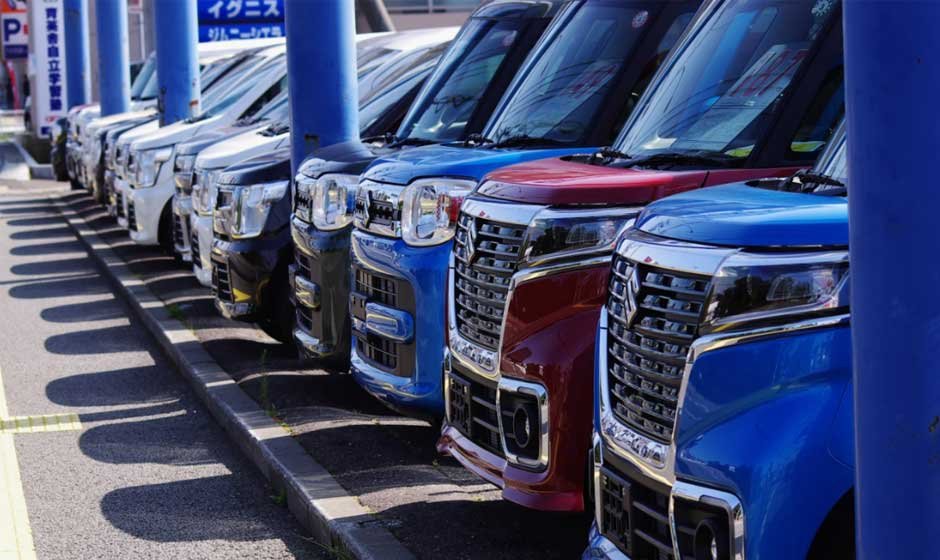Used vehicles often offer better value than new ones, letting you avoid the steep depreciation that hits as soon as a car leaves the lot. Each option comes with its own set of benefits and risks, and the right choice depends on what matters most to you. Do you prioritize getting the lowest price possible, or is peace of mind worth paying a little more? Are you comfortable navigating paperwork and negotiations on your own, or do you want a structured process with built-in protections? Knowing the pros and cons of both routes can save you from making a costly mistake and help you find a used car that fits your budget and lifestyle.
Financing Options: More Flexibility at Dealerships
They often work with multiple lenders and can help you compare rates, submit loan applications, and complete all paperwork in one place. This is helpful if you don’t have a perfect credit score or need a specific type of loan. Dealerships often have a variety of used SUVs, giving you not only more vehicle options but also access to in-house financing solutions tailored to different credit situations. While dealership financing might result in slightly higher interest rates compared to a bank loan, the convenience and structure they offer make it easier if you don’t want to handle every detail yourself.
Vehicle History and Inspection: Dealerships Offer Transparency, Private Sellers Don’t Always
Many dealerships even offer certified pre-owned (CPO) cars that have gone through a thorough multi-point inspection and come with limited warranties. This can give you peace of mind that the car hasn’t been in a serious accident or had major repairs. With private sellers, it’s hit or miss. Some might provide service records or let you bring a mechanic to check out the car, but you’re often relying on their honesty. If you’re not car-savvy or don’t want to deal with arranging your inspection, dealerships offer a safer and more transparent route.
Price: Lower with Private Sellers, Higher at Dealerships
Private sellers almost always offer better prices than dealerships. That’s because they’re not running a business, they don’t have overhead costs, and they’re just trying to sell a car quickly. You might find a vehicle that’s hundreds or even thousands cheaper than what a dealership would charge for something similar. Dealerships usually mark up prices to cover expenses like salaries, rent, advertising, and detailing. If you’re on a tight budget and willing to do some extra legwork, buying from a private seller could be your best bet.
Paperwork and Legalities: Dealerships Handle It All for You
When you buy from a dealership, they handle all the legal documents, title transfer, registration, and sometimes even tax filings. This saves you time and makes sure everything is done correctly. You walk in, sign a few papers, and leave with a car. When buying from a private seller, you’re responsible for every single step. That means verifying the title is clean, filling out transfer forms, and sometimes going to your local DMV yourself. If the paperwork is incomplete or incorrect, you can end up with legal headaches or delays in getting the vehicle registered in your name.
Room for Negotiation: Easier with Private Sellers
You usually have more bargaining power when dealing with a private seller. They’re motivated to sell quickly and may be willing to drop the price if you make a reasonable offer. There’s no sales manager in the backroom or company pricing strategy to deal with – it’s just you and the seller. Dealerships are less flexible. They might give you a few hundred off, throw in a service or discount on future maintenance, but you’re rarely going to talk them down drastically unless the car has been sitting for a long time.
Protection and Return Options: Dealerships Offer More Security
Buying from a dealership often includes buyer protection features like return policies, lemon laws, and short-term warranties. Some even offer a 7-day return period or allow exchanges. That kind of protection doesn’t exist with most private sales. Once you hand over the cash to a private seller, the deal is final – no matter what problems show up afterward. If the car breaks down a week later, you’re on your own. Dealerships are bound by consumer protection laws, which give you a layer of safety in case something goes wrong.

Both dealerships and private sellers have their merits. If you want a lower price, more control, and are confident in your ability to assess a vehicle, buying from a private seller can be a great deal. But if you’re looking for security, financing options, and a smooth, hands-off process, a dealership might be worth the extra cost. Think about what matters most to you: budget, time, peace of mind, or flexibility. Whatever you choose, take your time, ask the right questions, and don’t rush into a deal you’re not sure about.










